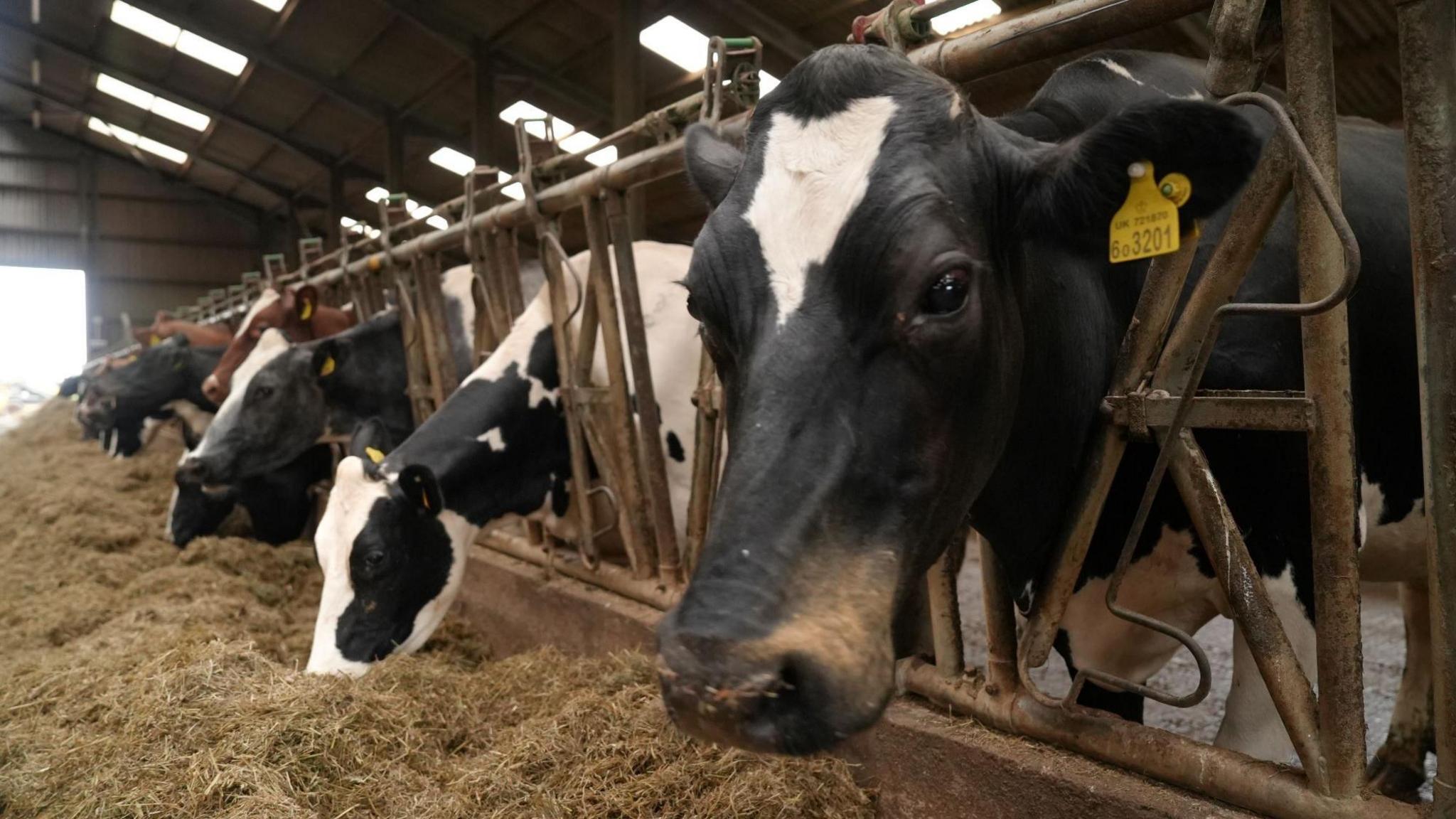First cases of deadly livestock virus identified in Wales

Livestock keepers have been urged to "remain vigilant" after the discovery of the virus at two sites in Wales
- Published
Cases of the bluetongue virus have been detected in livestock in Wales for the first time this year.
The Welsh government said bluetongue (BTV-3) was found at two premises, one in Chepstow, Monmouthshire, and another in Presteigne, Powys.
A statement urged livestock keepers to "remain vigilant and practise safe sourcing of livestock", speak to their vet and report suspected cases to the Animal and Plant Health Agency (APHA), external.
It follows the easing of strict rules preventing movement of livestock from England without a negative test, with the Welsh government allowing in vaccinated animals from restricted zones from last week due to "low temperatures reducing virus transmission by midges".
Since 1 July, the UK government has designated England a restricted zone, meaning livestock from there cannot come into Wales.
There had been some cases in England this year, but none in Wales until now.
Five cases of bluetongue identified in county
- Published24 September
Warning of 'massive impact' of farm virus in Wales
- Published28 October 2024
Deadly livestock virus travel restrictions to ease
- Published18 August
But some farmers claimed the restrictions have driven prices up "because Welsh farmers are all buying stock in Wales".
Senior vets previously raised concerns over slow uptake of the bluetongue vaccine in Wales.
But all unvaccinated livestock still needs a costly pre-movement test before they can be transported into Wales.
What is bluetongue?
Bluetongue affects cattle, goats, sheep, deer and camelids such as llamas and alpacas.
It can cause ulcers or sores around the animal's mouth and face, difficulties swallowing and breathing, fever and lameness, foetal deformities and stillbirths.
Spread by midges, bluetongue poses no threat to humans or food safety but can have serious consequences for livestock.
The latest outbreak began in the Netherlands in 2023, where tens of thousands of sheep died, and midges blown over from the continent began infecting livestock in the south-east of England too.
But the impact of BTV-3 seems to vary considerably across different regions, with some animals showing little sign of infection and managing to recover.
It is a notifiable disease so anyone suspecting their animals may have it must report it to the APHA.
A Welsh government spokesperson said: "We've been working hard to keep Bluetongue out of Wales and it's been nearly a year since our last confirmed case. We are keeping our Bluetongue policy under regular review based on emerging evidence.
"We urge livestock keepers to continue to be vigilant, follow stringent biosecurity measures and to practice safe sourcing of livestock. Equally, we encourage livestock keepers to talk with their vet about Bluetongue, including vaccination, and to report suspect cases to APHA."